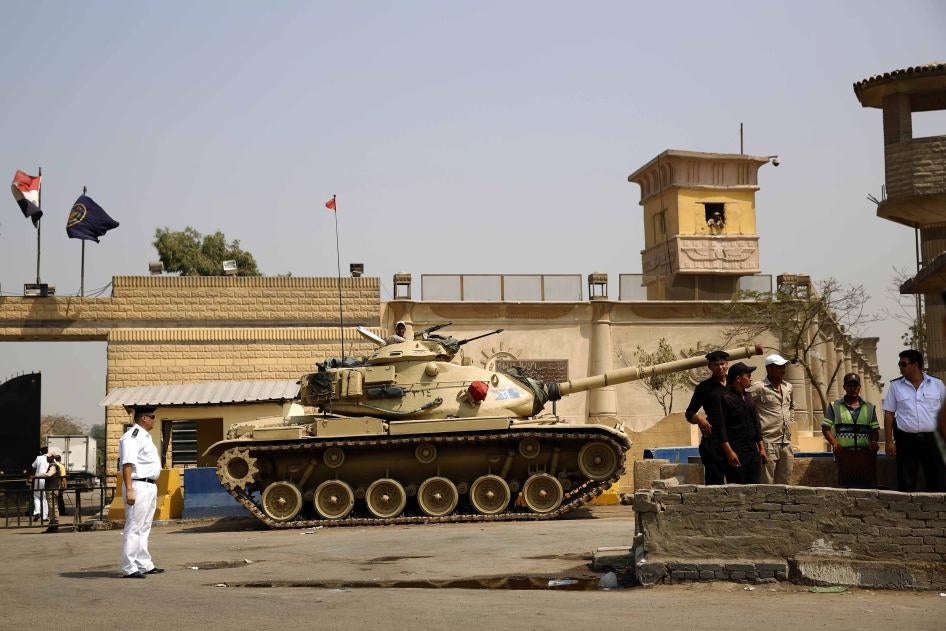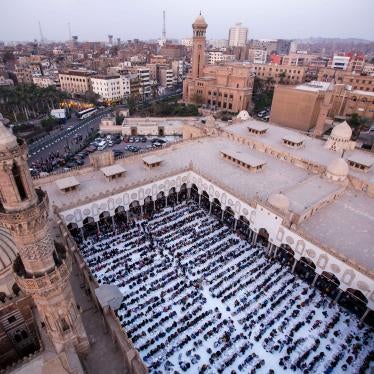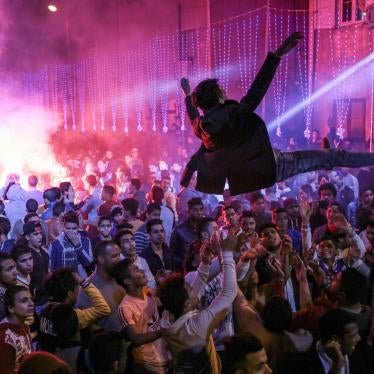During the last days of Ramadan, on April 24, Egyptian authorities freed around 40 unjustly detained prisoners, among them journalists, activists, and human rights defenders, many of whose families have tirelessly pushed for their release for years.
While it is heartwarming to see friends and family of activist Walid Shawky, journalists Mohamed Salah and Essam Abdeen, and others posting pictures on social media of smiling and exhausted former prisoners who spent years in pretrial detention, Egypt’s international partners should recognize publicly that piecemeal releases do not indicate an end to the extensive repression practiced by the current government.
The releases came amid a mounting domestic and international outcry about the suspicious death in custody of economist and former Reform and Development Party member Ayman Hadhoud. They preceded an Iftar dinner on April 26 hosted by President Abdel-Fattah Sisi to which he invited prominent opposition leaders, including former presidential candidate Hamdeen Sabbahi, ex-detainee and former head of the Constitution Party Khaled Dawood, and others. As a precondition for attending these opposition figures had demanded the release of several of the prisoners, according to media outlet Mada Masr.
Mada Masr reported that Egyptian authorities authorized the releases on the condition that, once free, the activists remain silent and refrain from criticizing the authorities. This suggests that their liberation from prison is unlikely to lead to an opening in freedom of speech in the country including the right to criticize Egypt’s abysmal human rights record.
As the freed prisoners were reuniting with friends and family, others were seized by Egyptian authorities to begin the same endless cycle of consecutive 15-day pretrial detention orders, evidence that they were intended mainly to deflect domestic and international criticism.
On April 24 – the same day that the releases were announced – Egyptian authorities arrested TV presenter Hala Fahmy, and journalist Safaa al-Korbagy was handed a 15-day detention order by the State Security Prosecution, three days after her arrest.
While the Egyptian authorities receive praise from diplomats for releasing a few who should never have been imprisoned in the first place, numerous questions about the circumstances of Hadhoud’s death in custody remain unanswered, and thousands continue to linger in prison for their peaceful activism and for being critical of the Sisi government.










